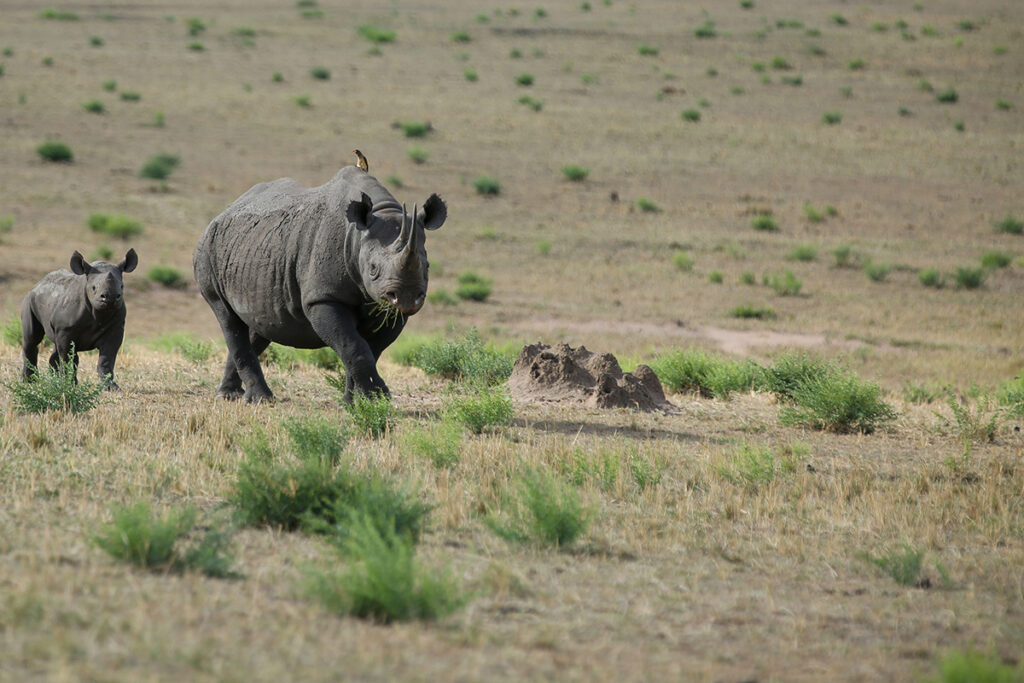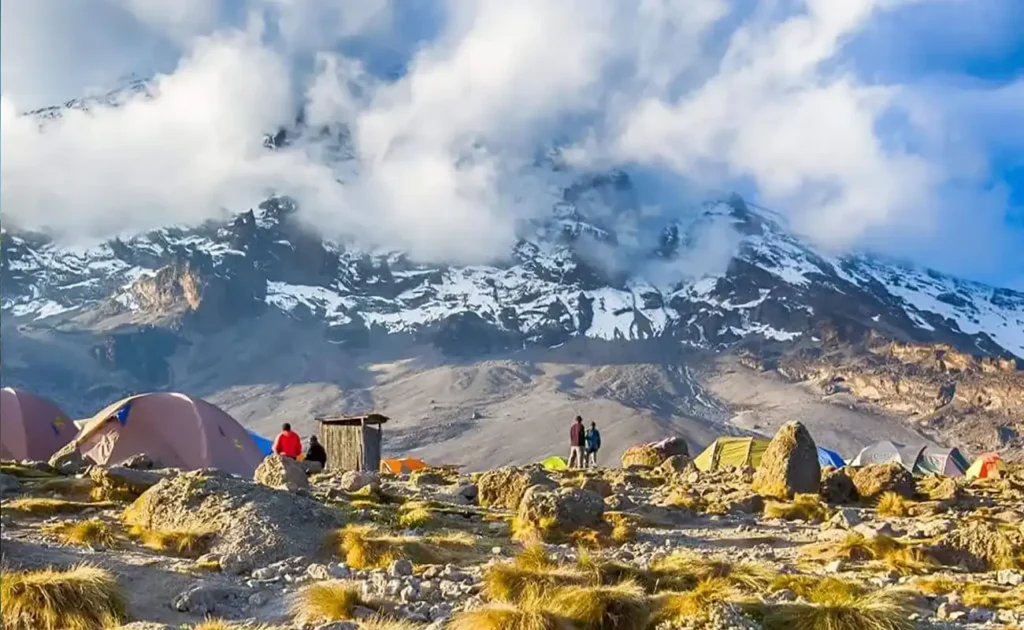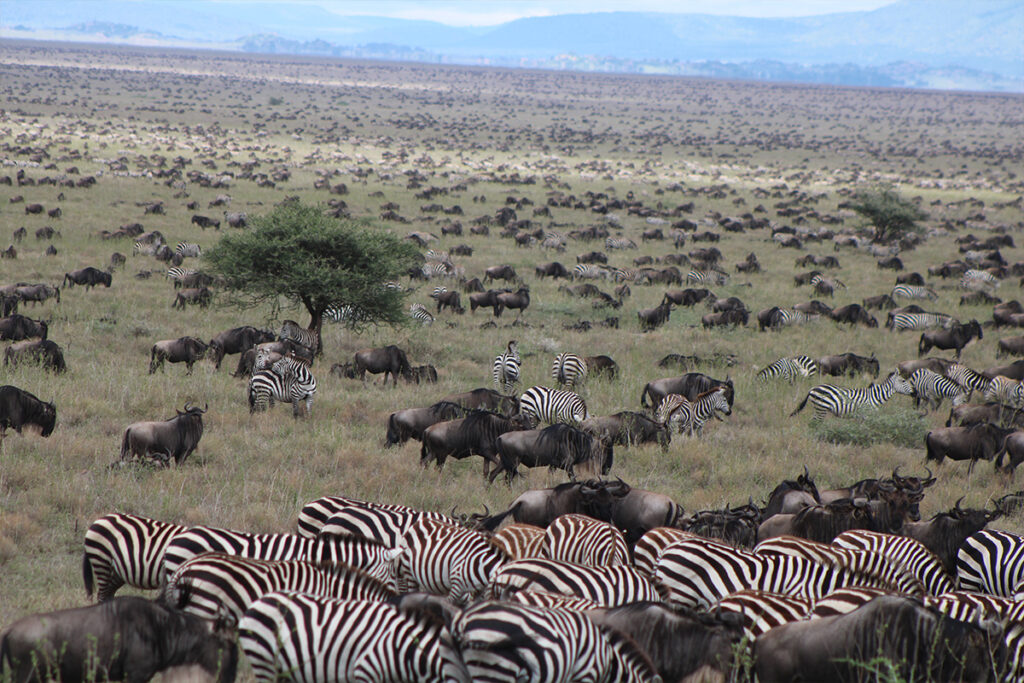Embarking on a safari in Tanzania promises an adventure like no other, filled with stunning wildlife and breathtaking landscapes. However, many travelers are unaware that certain vaccinations are crucial to ensure their safety throughout this journey. A study shows that incidences of diseases like Yellow Fever and Malaria are significantly reduced with proper vaccination and preventive measures.
Tanzania’s health authorities emphasize the importance of vaccinations due to the country’s diverse ecosystem that harbors various health risks. Yellow Fever vaccination is mandatory for travelers, while protection against Hepatitis A, Typhoid, and Malaria is strongly advised. According to the World Health Organization, over 80% of safari travelers who were vaccinated experienced no major health issues during their stay.

Essential Vaccinations for Tanzania Safari
Traveling to Tanzania for a safari is thrilling yet requires some preparation. One critical step in preparing is getting the right vaccinations. The most important is the Yellow Fever vaccine as it’s mandatory. This disease is spread by mosquitoes and can be severe. Make sure to get this vaccine at least 10 days before your trip.
Besides Yellow Fever, consider getting vaccinated against Hepatitis A and Typhoid. These vaccinations protect you from diseases transmitted through contaminated food and water. Tanzania’s remote safari areas might not have the best sanitation. It’s wise to prevent these illnesses rather than deal with them on your adventure. Follow up with your doctor for a personalized travel health plan.
Another serious health consideration is Malaria. Unlike the flu shot, there’s no vaccine for Malaria. Instead, travelers take Malaria prophylaxis, which is a medicine to prevent the disease. The medicine should be started several days before entering a Malaria-prone area. Consistent use is key to staying healthy.
It’s essential to think about who is traveling with you. Pregnant women, children, and the elderly may need special attention. Consult healthcare providers for specific recommendations. These groups may have different needs when it comes to vaccinations. This ensures that everyone remains safe and healthy during your safari adventure.
Mandatory Vaccination: Yellow Fever
Yellow Fever is a serious disease caused by a virus transmitted through mosquito bites. It’s a risk in many parts of Africa, including Tanzania. Because of this, the Yellow Fever vaccine is mandatory if you’re traveling from a country where the disease exists. Even if your country doesn’t have the risk, some border officials require proof of immunization. It is crucial to carry a valid vaccination certificate, known as the Yellow Card.
The vaccine is usually given in a single shot and provides lifelong protection. It is typically recommended for everyone over nine months old. Some people, like those with weakened immune systems or allergies, may not be able to receive it. Discuss any concerns with your healthcare provider well before your departure. Understanding who should and shouldn’t get the vaccine ensures safety for all travelers.
Timing is critical when getting vaccinated. The shot must be taken at least 10 days before entering Tanzania to become effective. This waiting period allows your body to develop immunity against the virus. Book an appointment with a certified vaccination center early. Make this part of your travel checklist to avoid last-minute panic.
Complying with vaccination requirements helps protect not only yourself but also local communities. Yellow Fever outbreaks can have severe impacts in areas without strong healthcare infrastructure. Vaccination prevents the possible spread of the disease. This proactive step also ensures smoother transit through various checkpoints. Safe travel starts with thorough preparation and awareness.
Recommended Vaccinations: Typhoid, Hepatitis A, and Cholera
Traveling to Tanzania for a safari means exploring breathtaking landscapes but also being cautious about health. Typhoid, Hepatitis A, and Cholera are diseases you can encounter through contaminated food and water. These vaccinations are strongly recommended to keep you safe during your trip. The Typhoid vaccine protects against a bacterial infection common in regions with poor sanitation. Hepatitis A is another viral liver disease, but both can be prevented with a simple shot.
For Cholera, a disease spread through dirty water, vaccination is suggested if you’re venturing into areas with little to no clean facilities. This is especially important since some rural parts of Tanzania have limited access to clean water. Travelers can take the oral Cholera vaccine. It’s easy to administer and grants protection for a short period. Remember to complete the full course before departure.
Consulting with a healthcare provider is essential to discuss your vaccination plan. They will recommend the appropriate vaccines based on your itinerary and health conditions. Your doctor can explain the benefits and possible side effects of each vaccine. Being informed helps you make the best decisions for your health. Plan well in advance to allow time for all recommended vaccines to become effective.
Don’t postpone scheduling your vaccinations. Clinics may have varying availability, so getting an appointment early is crucial. By following expert advice and staying updated on health requirements, you’ll enjoy a safer journey. Safe travel is not just about vaccinations but also includes maintaining other health practices. This proactive approach ensures peace of mind throughout your safari adventure.
Malaria Prophylaxis: Options and Importance
Malaria, a mosquito-borne disease, is a significant concern for travelers visiting many parts of Tanzania. It’s essential to understand the options for malaria prophylaxis to protect yourself during your safari. These medications prevent the infection and ensure a safer travel experience. The right choice depends on several factors, including your health and travel plans. Consulting a healthcare provider will guide you to the best option.
Commonly recommended medications include Malarone, Doxycycline, and Mefloquine. Each has unique advantages and potential side effects. Malarone is a popular choice because of its short dosing schedule and minimal side effects. Doxycycline is often used for longer trips as it also treats various infections. Mefloquine is suitable for those who plan on staying for extended periods but may cause vivid dreams or nightmares.
To maximize protection, it’s crucial to start taking the medication before entering an area where malaria is present. Generally, this means beginning your regimen a few days before arrival, continuing daily while there, and for some time after departure. Adherence to this schedule is vital for effectiveness. Missing doses can negate protection, putting you at risk of infection.
In addition to medication, adopting preventive measures enhances protection. Using insect repellent, wearing long-sleeved clothing, and sleeping under mosquito nets are simple yet effective practices. These habits reduce exposure to mosquito bites drastically. Combining these practices with prophylaxis offers comprehensive protection. Prioritizing safety ensures a worry-free adventure.
Young children, pregnant women, and those with chronic health conditions should take extra precautions. Some medications might not be suitable for them, requiring specialist consultation. Customized health plans will address unique needs, ensuring everyone stays healthy. This thorough planning contributes to a memorable experience for all travelers. Remember, preparation is the key to a successful trip.
Considerations for Children, Seniors, and Pregnant Women
Traveling to Tanzania involves special health considerations, especially for children. Kids are more susceptible to diseases like malaria and need protection. It’s crucial to ensure they receive age-appropriate vaccinations. Doctors may recommend extra precautions, such as using pediatric mosquito nets. Children’s medications might differ in dosage and frequency compared to adults.
For seniors, health concerns may include chronic conditions that require careful attention. Vaccinations are still essential, but it’s important to consult with healthcare providers about any interactions with existing medications. Seniors should also consider additional travel insurance. This ensures they have access to medical care in case of emergencies. It’s all about balancing adventure with safety.
Pregnant women face unique challenges when planning a safari. Some vaccinations are not suitable during pregnancy, requiring alternative preventive measures. Malaria prophylaxis options, for example, vary significantly and should be thoroughly discussed with a doctor. It’s vital to maintain a healthy environment by using mosquito repellents and wearing protective clothing. Prenatal care visits are an excellent opportunity to outline these travel plans.
For all groups, packing a comprehensive travel health kit can be a lifesaver. It should contain essential items like medications, insect repellent, and first-aid supplies. Having these at hand reduces reliance on local pharmacies. This is particularly important in remote safari locations. Preparation starts with a well-thought-out packing list tailored to specific needs.
Understanding these considerations helps make a safe and enjoyable safari possible. Investing time in planning ensures that children, seniors, and pregnant women can all participate safely. With the correct precautions, everyone can enjoy the breathtaking beauty of Tanzania. Adventure and safety can go hand in hand. Embrace the journey with peace of mind.
Where to Get Vaccinated Before Your Trip
Finding the right place to get vaccinated before traveling to Tanzania is crucial for your health. Many travelers start by visiting their primary care doctor. This is a good option as they already have your medical history. However, some vaccines, like the Yellow Fever vaccine, may not be readily available here. Specialized travel clinics often provide a wider range of vaccines for international travels.
Travel clinics are staffed by professionals who focus specifically on travel health needs. They offer valuable advice about which vaccines are necessary for specific destinations. These clinics can also guide you on precautions for avoiding illnesses. Often, they have flexible hours to accommodate busy schedules. A quick search online can show local clinics in your area.
Some large pharmacies and health centers also offer vaccinations for travelers. This can be convenient as appointments may not always be necessary. They often have location details and services on their websites. Checking if they offer the vaccines you need can save time. Remember, it’s wise to call ahead and confirm availability.
Insurance coverage is another factor to consider when planning your vaccinations. Check if your health plan covers travel-related vaccines. If not, understanding the cost is important to avoid surprises. Some vaccines can be expensive, so planning ahead helps manage expenses effectively. A thorough check ensures you aren’t caught off guard financially.
If you live in a smaller town, accessing these services might require some travel. Consider making a day trip to a nearby city where more options exist. This approach ensures you meet all travel health requirements. Planning your vaccine schedule should blend smoothly into your overall travel preparation. This seamless integration into your planning enhances both safety and travel enjoyment.
Timing Your Vaccinations Correctly
Timing vaccinations before your trip to Tanzania is crucial for ensuring their effectiveness. Most vaccines need time to start working, so planning ahead is important. Ideally, begin organizing your vaccinations at least six to eight weeks prior to departure. This allows time for any booster doses you might need. It also ensures you are fully protected by the time you arrive.
The Yellow Fever vaccine, for example, requires a minimum of 10 days after administration to become effective. This timeline is critical because it’s a mandatory vaccine for entry into Tanzania. Missing this window could result in travel delays or restrictions. Always check the specific requirements of each vaccine you’ll need. They can vary based on destination and health conditions.
For Malaria prophylaxis, timing also plays a significant role in protection. Begin taking your malaria pills one or two days before entering an area with a high risk of malaria. Continue taking them throughout your stay and for seven days after leaving the risk area. Following these guidelines reduces the risk of infection considerably.
- Typhoid Vaccine: At least 1-2 weeks before travel
- Hepatitis A Vaccine: Ideally, 2-4 weeks before departure
- Cholera Vaccine: Oral doses completed 10 days before exposure
Your health provider can help tailor your vaccination schedule based on personal needs and plans. Consider other factors like your itinerary changes or possible side effects that may require additional rest days post-vaccination. Preparing in advance will give peace of mind once you’re traveling through Africa’s wild landscapes. Leveraging expert advice plays a key role in successful preparation.
Understanding Health Risks in Different Regions of Tanzania
Tanzania’s diverse landscapes bring different health risks across its regions. In the Serengeti, malaria is a major concern due to the abundance of mosquitoes. Travelers are advised to take preventive medicine and use repellents. However, the cooler highlands of the Ngorongoro Crater present a lower malaria risk. Knowing the conditions of each area helps tailor your preparations.
Zanzibar, a popular island destination, has different health considerations. Yellow Fever vaccinations are required if arriving from an endemic country. The island also has a risk of mosquito-borne diseases during certain seasons. Tourists should use protective measures such as mosquito nets. Sun protection is also important due to intense UV rays, especially on the beaches.
The remote regions like the Selous Game Reserve and Ruaha National Park might lack some medical facilities. Carrying a first-aid kit is advisable when visiting these areas. Vaccinations for food and water-borne illnesses like Hepatitis A and Typhoid are essential. Keep a close eye on what you consume to minimize health risks. Safety and enjoyment go hand in hand with careful planning.
Visitors planning to climb Mount Kilimanjaro should prepare for altitude sickness. This is more prevalent at higher elevations. Staying properly hydrated and allowing time to acclimate can help. Consulting with a healthcare provider before such trips is an excellent idea. They provide medication and advice on handling altitude changes.
- Serengeti: High risk of malaria
- Zanzibar: Yellow Fever check, high UV exposure
- Ngorongoro: Cooler, lower malaria risk
- Kilimanjaro: Potential for altitude sickness
Understanding the risks associated with each region ensures more informed travel choices. Adapting to these challenges makes the safari experience safe and thrilling. Staying aware allows you to enjoy Tanzania’s wonders fully. Leverage local resources and knowledge for the best outcome. Tailoring your health strategy is key to a successful adventure.
Key Takeaways
- Yellow Fever vaccination is mandatory for Tanzania travel.
- Consider Hepatitis A and Typhoid vaccines for further protection.
- Malaria prophylaxis is crucial to prevent mosquito-borne malaria.
- Consult healthcare professionals for personalized vaccine advice.
- Avoid health risks by preparing well before your journey.



